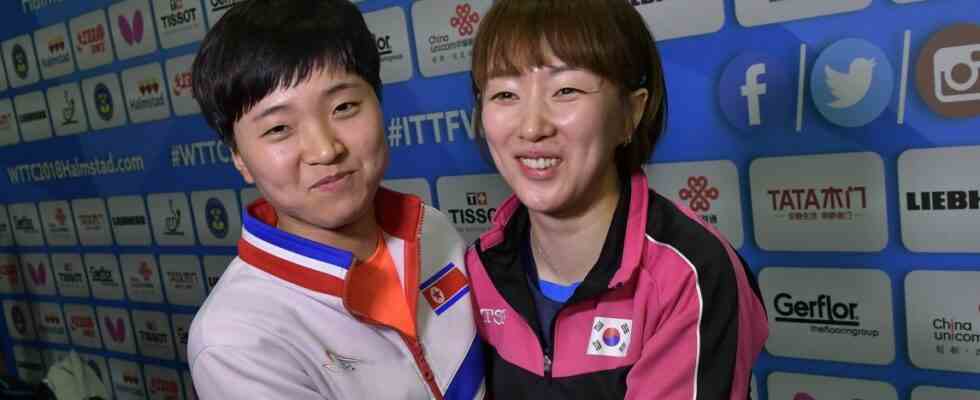In table tennis there were always powerful signs of rapprochement between opposing blocks. Now the World Championships in China are just around the corner, but one important team is staying away.
The teams arrived in Chengdu on Monday. With planes chartered by the International Table Tennis Federation (ITTF), of course. Because even if its team world championship in the central Chinese metropolis this year is the only global sports event in China after the Olympic and Paralympic Winter Games in Beijing – due to the pandemic, the strict hygiene regulations of the Chinese government still apply. Traveling is therefore a security risk. The organizers from the party dictatorship probably didn’t find it quite as sad as some cosmopolitan fans that someone was missing when the teams arrived.
Little has been heard from North Korea since the pandemic began except propaganda and rocket launches. The regime of ruler Kim Jong-un has consistently sealed itself off against the corona virus, almost nobody is allowed in or out. The World Cup in Chengdu initially seemed like a rare chance to see real people from the Kim cosmos again. Because table tennis can and is liked in North Korea. And on an early start list, North Korea’s strong women’s team was actually noted. International observers took notice. But on the last registration form, the team was not on it again. Disillusionment.
Powerful signs can emanate from sport. And in Asia, table tennis in particular has proven itself as a communication platform. The game arrived there from England in the early 20th century and caught on, particularly in communist China, as a mass pastime and expression of post-revolutionary strength. For Mao Zedong, table tennis was a “spiritual nuclear weapon” because his players celebrated victory after victory. In the 1970s table tennis brought the USA and Mao’s China closer together. This so-called ping-pong diplomacy started when the American participant Glenn Cowan accidentally got on the Chinese team bus at the 1971 World Cup in Nagoya and the world-class player Zhuang Zedong greeted him warmly.
North Korea’s table tennis team also had a great moment of reconciliation: World Cup 2018 in Halmstad, quarterfinals of the women’s tournament. The North Koreans should play against the South Koreans. But they didn’t do that, they joined forces. The association statutes were not prepared for such a gesture. But of course, the unified Korea got to play Japan in the semi-finals and were later honored with the bronze medal.
Not that long ago. At that time, South Korea’s liberal President Moon Jae-in had just initiated a phase of rapprochement with Kim Jong-un. The two Koreas competed together at the Olympics in Pyeongchang the previous February. But in the end the approach didn’t work. Moon is no longer president. Kim keeps flying test rockets. The cold war is back.
The pandemic has made things worse. Among other things, because the regime no longer lets its athletes out. Even at the World Championships in Chengdu, which starts on Friday, you have to realize that even table tennis is no stronger than a dictator’s stubborn head.

